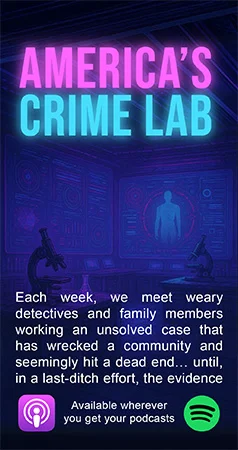Hello, I have been a lurker for a while now on Websleuths but have never posted...
I'm a psychotherapist and it alarms me that so many people are saying that his therapists should have been able to diagnose him or realize that he was a threat to himself or others. Please let it be known that therapists are not psychics!
It is very difficult to diagnose a manipulative client, and one that hasn't ever been involved in the legal system. We need symptoms to diagnose, and if those symptoms are not made available via client report/presentation, family, or client systems report, it is virtually impossible to come up with an accurate diagnosis. I believe that psychopathy can be easily misdiagnosed as Asperger's, but it is definitely possible to have both as one does not rule out the other. There is a saying in my industry: "You can't work harder than the client." If ER was not an active participant in therapy, then the therapists are left with an inaccurate picture much of the time and thus unable to accurately treat. I have my own private practice, and I terminate therapy with clients who are not participating/nonadherent to my treatment plan as it is a waste of their time and mine. I also cannot talk to family members of any of my adult patients unless my patient writes a release of information giving me permission to speak to them. In fact, I can't even acknowledge they are my client if family members call wanting to give me information.
We also don't know how many times he had seen therapists. I find it likely that he would not attend consistently and also terminate prematurely. Additionally, it is extremely difficult to treat someone who is psychotic, manic, delusional or paranoid when they are not taking their medication. I personally do not see any client displaying these symptoms until I can get a letter from the psychiatrist that they have been medically managed for 3+ months. This is mainly due to the fact that I work all by myself and I need patients with these symptoms to be accurately medicated for my own safety reasons. Many people who work in community mental health do not have this option, and rightly so.
An involuntary outpatient commitment could have been an option for ER in addition to involuntary inpatient commitment, as well as his parents getting conservatorship. However, these options are very hard to get, although I feel the involuntary outpatient commitment should be more readily available for those who have severe mental illness. Risperidone is available in a monthly shot as well and I feel that this should be used more readily in community mental health settings with people who have severe mental illness. However, if a patient does not share information with a mental health professional about plans to hurt himself or others, there is no duty to warn--in fact, we can be sued if we do so without such threats. In these cases patients often fly under the radar.
I have an aunt who is paranoid schizophrenic and has had 5 involuntary commitments due to the fact that she threatened others in our presence. She is extremely intelligent and figured out quickly how to get discharged. However, when we attempted to get conservatorship, she went missing for 3 years. To this day she doesn't adhere to her medication. We even found out that she bought a Glock in Texas AFTER she had already been institutionalized 4 times. Extremely scary. When I called to see if she had another gun in Nevada, where she had moved, no one was able to tell me if she had a gun or if she had ever applied to get one. We cannot force her to take her medicine as she is an adult. We cannot have her institutionalized again because she refuses to speak to us, and thus we have no more threatening statements from her.
Deinstitutionalization had many setbacks, and the biggest problem has been getting help for family members when you do not have threats of violence. I'm not sure what the answer is, because people with severe mental illness are warranted their own civil rights. Its definitely a major problem as a family member of a paranoid schizophrenic as well as a therapist.
JMO

